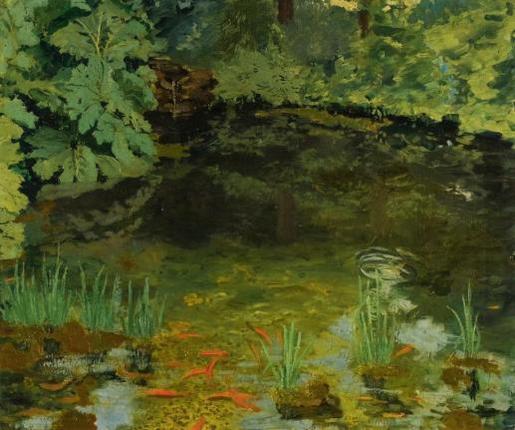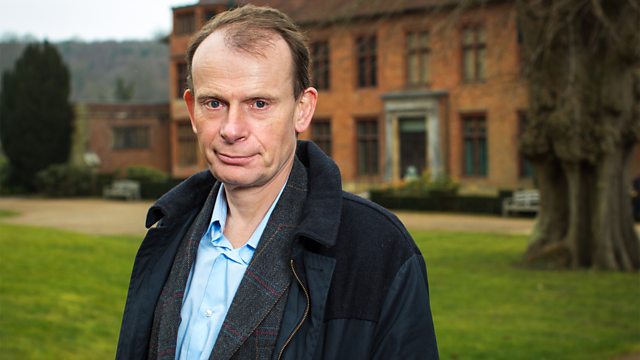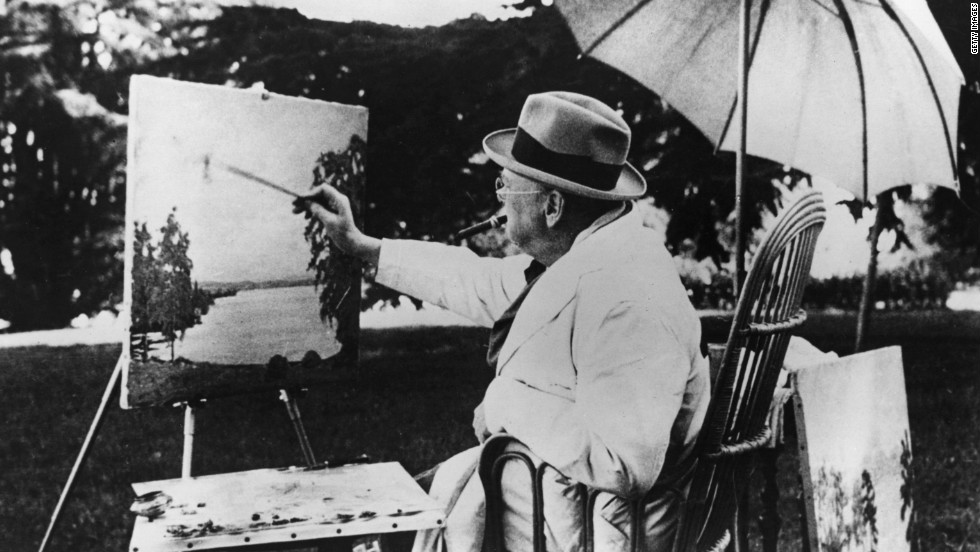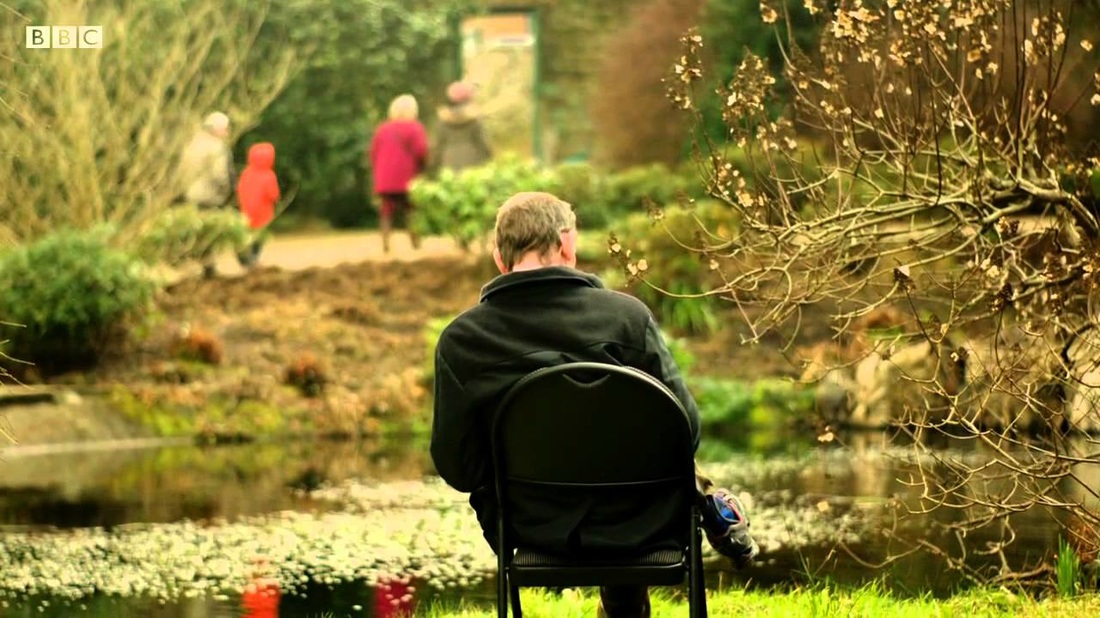|
If you missed this you have twenty one days and counting to see it on BBC i-player. Andrew Marr is well known as the BBC`s political editor and for his prodigious writing and broadcasting output. What might not be so well known is his passion for painting. In Churchill: Blood, sweat and oil paint he has found a subject which at one fell swoop combines his characteristic facility for bringing to life the famous political leaders of the past with his love of art, and in so doing lays open his own soul - and the powerful therapeutic value of "that primal business", the creative impulse to reproduce the wonder of the experienced world. Marr builds his thesis through interviews with Churchill`s family, associated art experts and even the son of the bodyguard and art assistant who accompanied the great man in later life on his painting expeditions. These are then given colour as like some latter day Alan Whicker he expounds on location in the Cote D`Azur, Marrakesh and - nearer home - Chartwell, where the National Trust has preserved Churchill`s studio, painting implements and 130 of his works. Painting for Churchill was a release from the pressures of his public life and interestingly for this most eloquent of public speakers, a way for him to cocoon himself in silence. His daughters, talking from memory of their childhoods and using words such as "engrossed", "electrified" and "total absorption" recall the intensity of the creative impulse that gripped their father and the way that it brought him comfort and solace from bouts of depression - his so-called "black dog". Churchill painted in his studio at Chartwell but by all accounts was happiest painting `en plein air` and in sunnier climes - hence the South of France or North Africa - complete with parasol, cigar, panama hat and the assorted paraphernalia of outdoor painting. His preferred style was impressionistic, painterly and he was not afraid of using bold colours and bludgeoning the canvas into submission. He characteristically dismissed his own paintings as `daubs` and indeed he must have felt rather insignificant in an artistic sense when mingling as he did with the English painters of his day - Walter Sickert, William Nicholson , John Lavery - from whom he picked up advice and tips. Now of course his paintings fetch handsome sums and no doubt his eyes were twinkling with amusement and no little pride as he looked down from his painterly heaven on the fifteen million pounds that Sotheby`s raised last December from the 256 lots of paintings and objects from Mary Soames` estate.  The Goldfish Pool at Chartwell, 1932 by Sir Winston Churchill. Sold for 1,762,500 at auction in 2014 The Goldfish Pool at Chartwell, 1932 by Sir Winston Churchill. Sold for 1,762,500 at auction in 2014 For me where the BBC`s programme really hits home is how Churchill`s private passion for painting is brought to life through the prism of Marr`s own experience. There are obvious similarities - both of them took up painting in middle life as a stress reliever, both are self-taught, and both having to deal with the physical challenges (yes, painting in oils is highly physical) of recovering from a stroke. So as well as showing archive images of Churchill painting the director sets Marr himself to paint on location simultaneously as he narrates and enthuses - the camera often trained in close-up on his artist`s-persona visage. I know from my own experience how horrible it is to have someone peering over your shoulder as you paint (all artists are paranoid) and here is Marr rather bravely applying his daubs of paint his pencil scratches in the unforgiving light of terrestrial broadcast. Of course the point is not whether the painting is any good or not (and here Marr is consistently self-deprecatory), the point that he makes rather brilliantly in a sun-drenched courtyard somewhere in Marrakesh is that if you are engaged in an activity (preferably something creative, and something difficult) with full intensity then the cares of the world simply disappear. He talks about "the capacity of art and its making to restore one`s mental health" and how Churchill saw art as "a way to fling open the shutters and let the sun shine back in". -I found similar resonances having taken up painting later in life, being self-taught, and experiencing the marvellous distraction of the painting process. I also use a `magic lantern`/projector to start off some paintings (as Walter Sickert taught Churchill) and David Hockney discusses in his book Secret Knowledge.
So do try to watch this whilst you still can. And I take my hat off to my old university chum Andrew Marr for his candour and his enthusiasm in showing us all how - in the crucible of creation - the soul itself is salved.
0 Comments
Leave a Reply. |
AuthorSimon Dalby Archives
December 2023
Categories |



 RSS Feed
RSS Feed